Exploring the connection between diet and heart health reveals just how influential our daily food choices can be—especially when it comes to the health of our arteries. Over time, certain foods can contribute to the buildup of plaque in the arteries, increasing the risk of cardiovascular disease, heart attacks, and strokes. High levels of saturated fats, trans fats, added sugars, and sodium are often the culprits, silently impairing vascular function and promoting inflammation. Understanding which foods may contribute to artery blockage is an important step toward preventing serious health complications and maintaining long-term wellness.
Fortunately, the power of nutrition also offers a path to protection. By swapping out harmful options for heart-friendly alternatives, it’s possible to nourish your body in ways that support clear arteries and robust cardiovascular health. Whole grains, lean proteins, healthy fats, and a rainbow of fruits and vegetables all play a role in reducing cholesterol, lowering blood pressure, and supporting overall circulation. This guide takes a closer look at foods that are best approached with caution, while highlighting nutrient-rich, flavorful alternatives that promote heart health without sacrificing taste. Small, consistent changes in your diet can yield significant results—and every bite can bring you closer to a healthier heart.
1. White Bread & Refined Carbs

Biting into a fluffy piece of white bread can be soft and delightful, but it lacks the fiber and essential nutrients needed for a balanced diet. White bread and other refined carbs are processed and stripped of valuable nutrients, which can cause spikes in blood sugar levels and potentially lead to plaque buildup in the arteries.
However, bread doesn’t have to be off the menu entirely. Switching to whole grain options offers more nutrients and is better for your heart. Making thoughtful choices can significantly impact maintaining a healthy lifestyle.
2. Processed Meats (Bacon, Sausage, Deli Meats)

Sizzling bacon and savory sausages often steal the show at breakfast, but they come with health warnings. These processed meats are high in saturated fats and salt, contributing to heart disease risks. Regular consumption can lead to elevated cholesterol levels, affecting heart health negatively.
Consider replacing them with leaner protein options like chicken or turkey. By making this swap, you can enjoy your meals while protecting your heart. Your heart will appreciate the lighter load. Exploring new recipes with healthier proteins can be both exciting and heart-friendly.
3. Sugary Beverages

Sugary drinks, like sodas and sweetened teas, are often a quick refreshment choice. Though tempting, these beverages are packed with sugars, contributing to weight gain and increased heart disease risk. The excess calories and sugar can lead to high blood pressure and diabetes.
Quenching your thirst with water, infused with a splash of lemon or mint, is a refreshing alternative. Staying hydrated with natural options helps maintain a healthy balance. Making small changes in your beverage choices can have a substantial impact on overall health.
4. Deep-Fried Foods

Golden brown and crispy, deep-fried foods are hard to resist. Unfortunately, they are laden with unhealthy trans fats that can clog your arteries. Regular consumption increases the risk of heart disease and obesity.
Opting for grilled or baked versions of your favorite dishes can satisfy cravings without compromising heart health. Exploring different cooking methods can open up a whole new world of flavors. By making mindful choices, you can enjoy delicious meals and support your heart’s well-being.
5. Fast Food Burgers

Biting into a juicy fast food burger might be convenient, but it’s often loaded with unhealthy fats and calories. These burgers can contribute significantly to clogged arteries and heart disease. Seeking alternatives like grilled chicken or veggie burgers is a step towards a heart-healthy diet.
Making smarter choices in fast food restaurants can lead to positive changes in your lifestyle. While enjoying a meal out, considering health-conscious options can make a difference in how you feel.
6. Butter-Heavy Dishes

Rich and creamy, butter-heavy dishes often delight our taste buds. Yet, they are packed with saturated fats that aren’t kind to the heart. Indulging too often may lead to increased cholesterol levels and artery blockage.
By swapping butter with olive oil, you can still enjoy flavorful dishes. Experimenting with different herbs and spices can add zest without relying on heavy butter. With mindful choices, you can savor your meals while supporting heart health.
7. Packaged Snack Cakes & Pastries
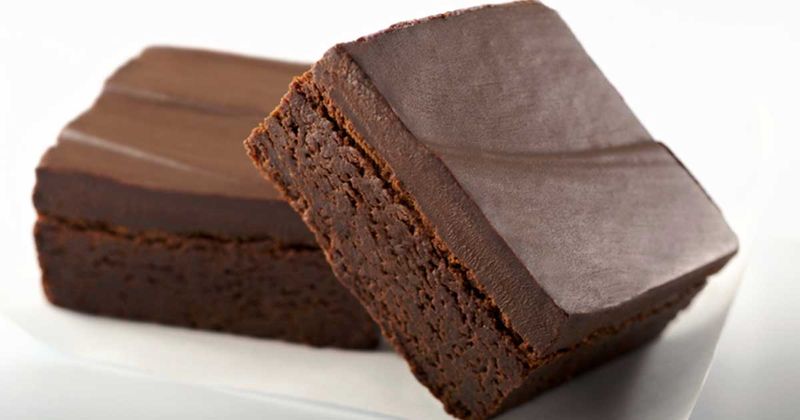
With their sweet allure, packaged snack cakes and pastries often tempt us during snack time. However, these treats are high in added sugars and unhealthy fats, which can negatively impact heart health. Regular consumption can lead to weight gain and increased cholesterol levels.
Opting for homemade treats with whole ingredients can satisfy your sweet tooth lovingly. By baking at home, you control the ingredients and make heart-smart decisions. Savoring each bite becomes a more wholesome experience.
8. Store-Bought Salad Dressings (Creamy Varieties)

Creamy salad dressings, while enhancing flavor, often mask hidden fats and sugars. These bottled condiments can turn a healthy salad into a calorie-laden dish. Making your own dressing with olive oil and vinegar offers a heart-friendly alternative.
With a splash of creativity, you can craft a dressing that enhances your salad’s natural flavors. Embracing fresh ingredients leads to healthier meals that nourish both body and heart.
9. Avocados
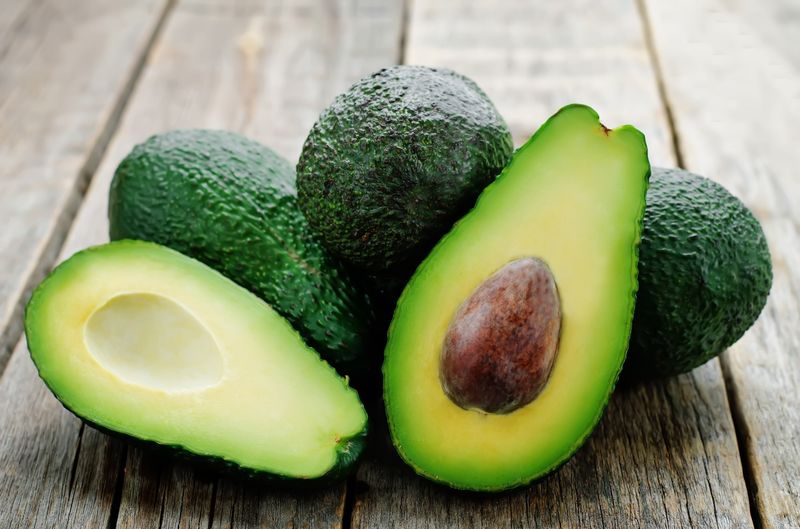
Velvety and luscious, avocados are a heart’s best friend. Rich in healthy monounsaturated fats, they help reduce bad cholesterol levels, promoting cardiovascular health. Incorporating avocados into your diet can lead to deliciously nutritious meals.
Whether spread on toast or added to salads, their buttery texture enhances every dish. Embracing avocados contributes to a balanced and heart-friendly diet. Besides their health benefits, avocados are versatile and delightful in various recipes.
10. Oats
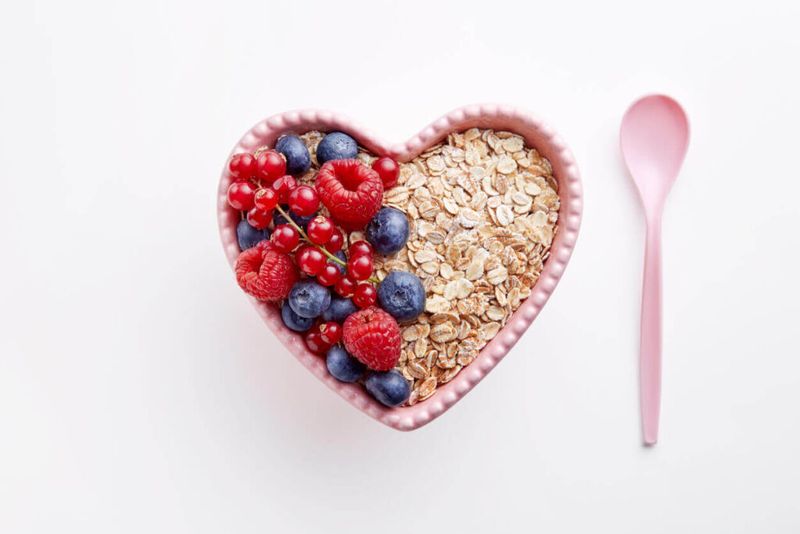
Warm and comforting, oats are a breakfast staple that supports heart health. Packed with soluble fiber, they help lower bad cholesterol levels and maintain a healthy heart. Starting your day with a bowl of oatmeal provides lasting energy and nourishment.
Oats can be prepared in various ways, from overnight oats to baked dishes. Incorporating oats into your diet brings both convenience and heart benefits. Their versatility makes them a favorite among those seeking a healthier lifestyle.
11. Walnuts and Almonds

Crunchy and satisfying, walnuts and almonds offer a powerhouse of nutrients. Rich in healthy fats and antioxidants, they support heart health and overall well-being. Snacking on a handful of these nuts can provide energy and nourishment throughout the day.
Incorporating them into meals or simply enjoying them on their own enhances your diet’s nutritional value. Embracing nuts as a regular snack promotes a heart-friendly lifestyle. Their natural goodness makes them a delightful choice for health-conscious individuals.
12. Salmon (or Fatty Fish)

Rosy and flavorful, salmon is a star in the world of heart-healthy foods. Abundant in omega-3 fatty acids, it helps reduce inflammation and supports heart function. Including salmon in your diet can lead to tasty and nutritious meals.
Whether grilled, baked, or poached, its rich flavor satisfies the palate. Exploring different cooking methods with salmon adds variety and excitement to your meals. This fish not only delights the taste buds but also supports a healthy heart.
13. Berries
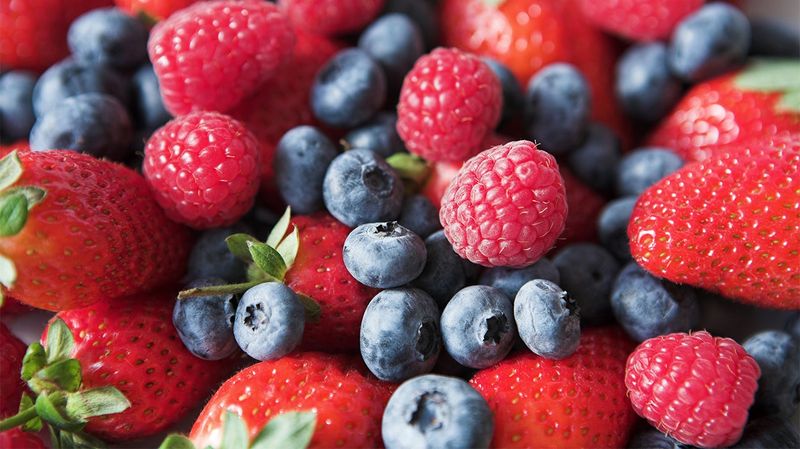
Bursting with color and flavor, berries are nature’s sweet gift to heart health. Packed with antioxidants and nutrients, they help fight inflammation and support cardiovascular function. Enjoying a mix of berries in your breakfast or as a snack can make your diet more vibrant and nutritious.
The variety of flavors and textures berries offer keeps your palate excited. Their natural sweetness satisfies cravings without compromising health. Incorporating berries into your diet is a delicious way to promote heart well-being.
14. Leafy Greens (Spinach, Kale, Arugula)
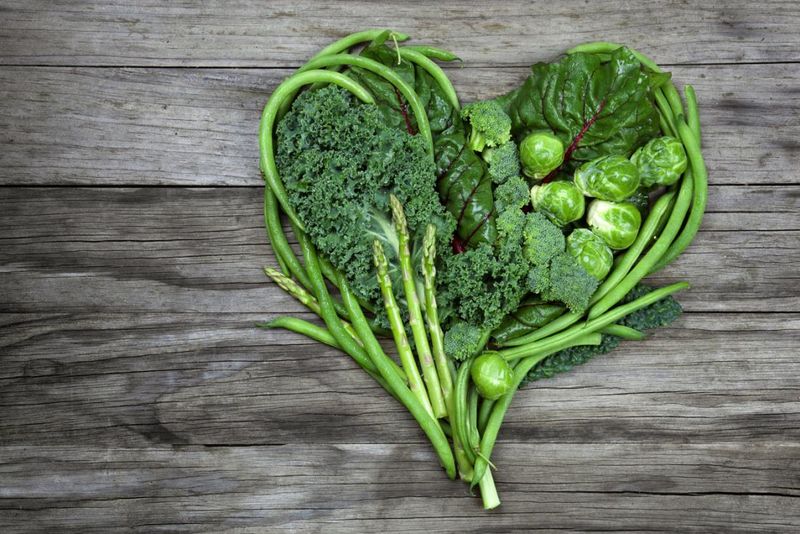
Green and refreshing, leafy greens are vital allies in maintaining heart health. Rich in vitamins and minerals, they support cardiovascular function and overall nutrition. Including a variety of greens in your meals can lead to a colorful and healthful diet.
Whether in salads, smoothies, or cooked dishes, their versatility is unmatched. Embracing leafy greens contributes to a balanced and heart-friendly lifestyle. These greens are not only nutritious but also bring flavor and vibrancy to every meal.
15. Beans and Lentils
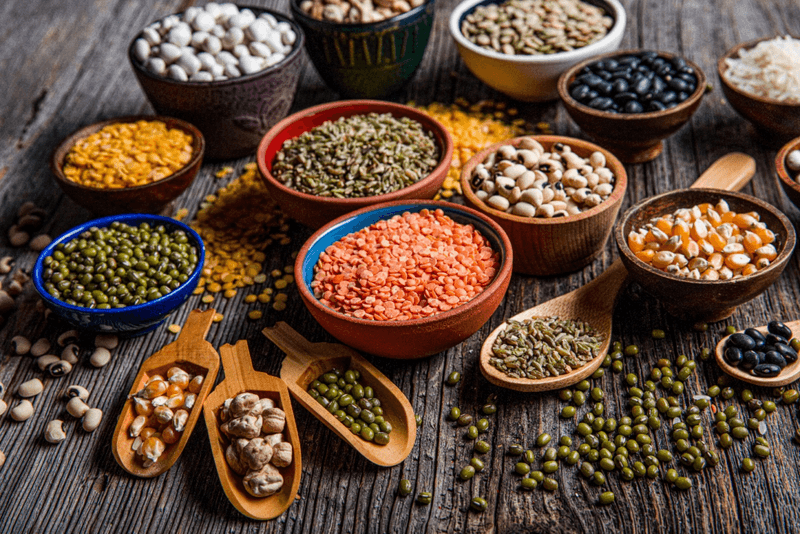
Hearty and nutritious, beans and lentils are staples in a heart-healthy diet. Rich in fiber and protein, they help regulate cholesterol levels and support cardiovascular health. Incorporating them into soups, stews, or salads adds both flavor and nourishment.
The versatility of beans and lentils allows for endless culinary creativity. Adding these legumes to your meals promotes a balanced and health-conscious lifestyle. Their earthy flavors and textures enhance a variety of dishes.
16. Dark Chocolate (70% or higher, in moderation)

Luxurious and indulgent, dark chocolate delights the senses while supporting heart health. Rich in antioxidants, a small amount can improve blood flow and reduce the risk of heart disease. Enjoying dark chocolate in moderation combines pleasure with health benefits.
Its intense flavor satisfies cravings and brings a touch of sophistication to your diet. Choosing high-quality chocolate ensures a richer taste and more healthful experience. Indulging mindfully allows you to enjoy the best of both worlds.
17. Olive Oil (Extra Virgin)

Golden and fragrant, extra virgin olive oil is a staple in heart-friendly cooking. Rich in monounsaturated fats, it helps lower bad cholesterol levels and promotes cardiovascular health. Using olive oil in cooking or as a salad dressing enhances flavors while supporting heart well-being.
Its smooth texture and mild taste complement a variety of dishes. Embracing olive oil in your culinary adventures brings both health and enjoyment to the table. This oil is a treasure in maintaining a balanced diet.
Leave a comment